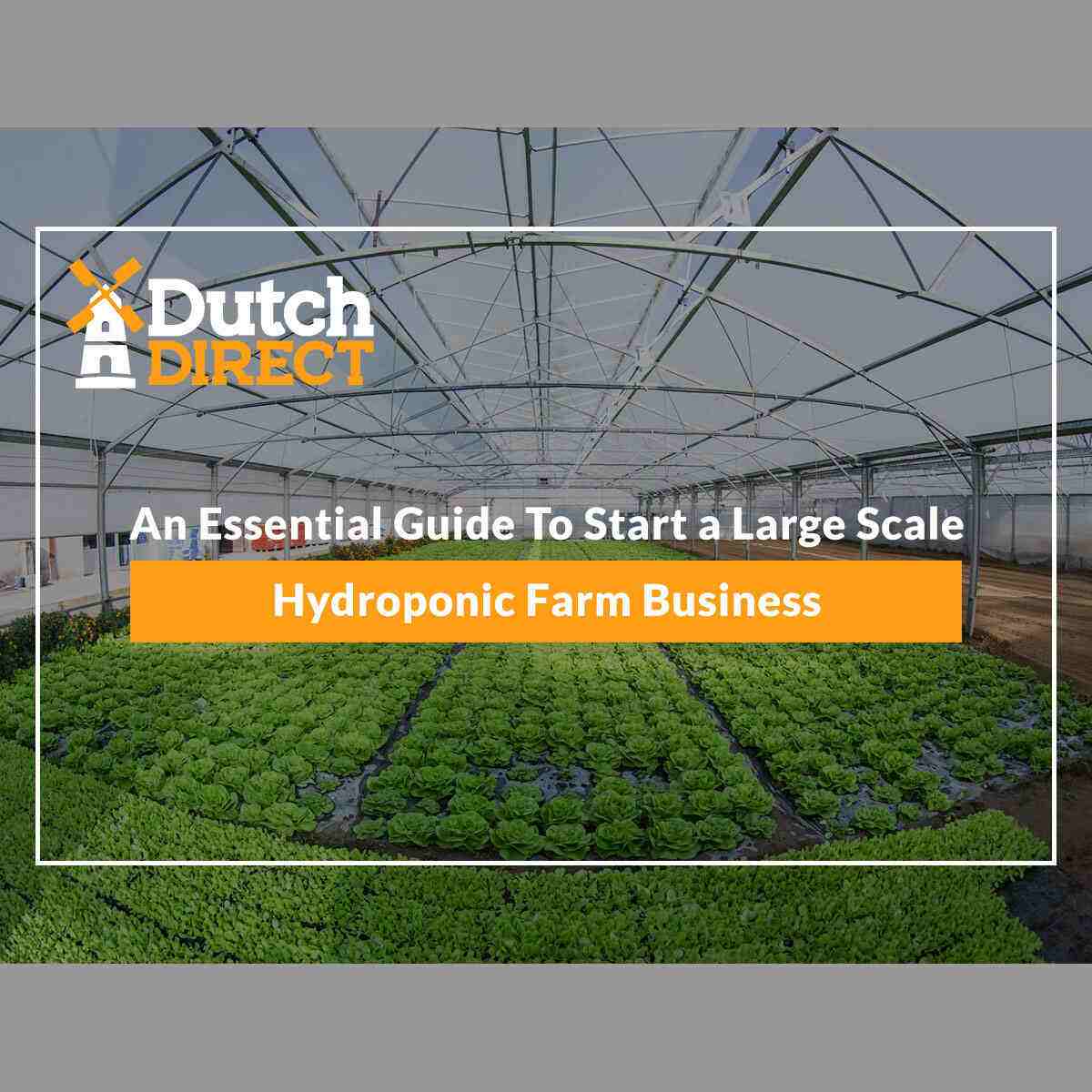How To Start a Successful Hydroponic Farming Business
10 Steps To Follow To Build Your Own Hydroponic Farm
Hydroponic farms grow and sell plants, vegetables, and other greeneries for businesses and people, making them an excellent source of investment. As a business plan, hydroponic farms require some steps to work successfully, and we will explain that in this article.
These farms are convenient places to give the community what it deserves. From high-quality plants to nutritious food, they can offer many things for individuals.
See the list of steps on how to start your hydroponic farm business below, including where to find a
Monterey commercial greenhouse supplier.
Step 1: Plan The Best Hydroponic Farm Business For You
You need a clear plan before creating your hydroponic farm business. This plan is the first step to map out the main items of your business and discover unknowns. Some topics to consider include:
- Ongoing costs: A space to grow your product is essential. You may need a greenhouse to create your hydroponic farm. Therefore, we recommend you plan to spend from $10,000 to $15,000 to build this space and acquire some supplies.
- Employment and equipment: You may need to pay between $8 and $13 per hour for each employee. You should also be ready to spend at least $200 per month on equipment.
- Target Market: The target market is usually supermarkets and restaurants, although some hydroponic farms also sell directly to the public. You should work with a marketing specialist to study your target market professionally.
- Name of the Business:
Choosing the right name is also essential. This task can be easier for you with a marketing specialist as well (you can work with the same person or agency that helped you with the target market plan).
Step 2: Turn Your Hydroponic Farm Business Into a Legal Entity
Before contacting a Salinas greenhouse farming distributor or a lawyer, turn your hydroponic farm company into a legal entity first.
There are different business structure types, so be sure to pick the best one for your project. The most common is the partnership, the sole proprietorship, the limited liability company (LLC), and the corporation.
Step 3: Register Your Business For Taxes
You have to register your company for taxes, but taxes will depend on which business structure you choose. For example, LLCs can benefit from being taxed as an S Corporation.
You may need a finance lawyer to learn more about business taxes.
Step 4: Prepare a Business Bank Account & Credit Card For The Project
Be sure to use a business bank account and credit card for this project. You should not mix your personal and business accounts at any cost because it could put your assets at risk if your business is sued.
Step 5: Prepare The Accounting Plan For Your Business
Record various expenses and sources of income when preparing your business. Keep accurate accounts to simplify your annual tax filing.
Do not forget to add the expenses with your trusted
Adelanto commercial greenhouse supplier
to track what you get for each purchase.
Step 6: Get The Required Permits & Licenses
You must acquire necessary permits to avoid fines or even a shut down in your business.
With a hydroponic farming business, you will need federal business licensing, certificate of occupancy, and food licenses. Food regulations are quite strict with businesses like these, so be very careful with them.
Step 7: Get The Best Insurance For Your Business
Your hydroponic farming business also needs insurance to operate lawfully and securely. This insurance protects your company’s wellbeing, especially if there’s a risk of loss.
There are different types of insurance policies for different types of businesses, so be sure to choose one that meets your company’s needs.
Step 8: Define Your Brand
Branding is crucial when creating a business. Your brand is what defines your company. It is how people see your business. With a strong brand, your hydroponic farm business will stand out.
You must offer competitive prices while producing high-quality products. You should also offer unique products that local supermarkets and restaurants can’t get from other farmers. For that, you can always get help from a reliable
Monterey agricultural distributor.
Once you define your brand, be sure to create a website. During this process, you should create the company's logo and the company's professional manual. This manual must include the company's mission, vision, and objectives.
Remember that for all this to be successful, it is best to have professional help, especially with companies specialized in marketing (including digital marketing and branding).
Step 9: Set Up Business Phone System
Get a phone set up for your business to keep your personal life separate and private. Besides, with a business phone system, you make your business more efficient and automated. It is the best way to make your potential clients find and contact you.
Step 10: Contact a Top-Rated Commercial Hydroponic Supplier
While creating your hydroponic farming business, do not forget to contact an agricultural distributor. For that, you can count on Dutch Direct, a licensed company that offers the best solutions for your hydroponic farm. We provide the best consumables and equipment at competitive prices to maximize your profit. Contact us now to learn more!













